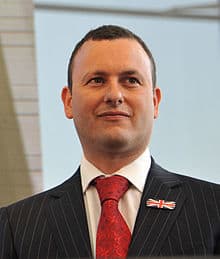NHSX, the new authority for driving forward the digital transformation of England’s NHS has named its new leader – but some in the health service are questioning how effective the new centrally-run organisation can be.

Matthew Gould, NHSX new leader
Matthew Gould is currently the director general for Digital and Media at the Department for Digital, Culture, Media and Sport, and will take on the lead role at NHSX – the X standing for ‘user experience’ – this summer.
The new arms length body is the brainchild of health secretary Matt Hancock, and has been created to accelerate the digital transformation of the NHS, both in its back office functions and also in its services for patients. Part of its pledge is to also make using technology easier for healthcare professionals – seen as key for passing on the benefits to patients.
The creation of NHSX reflects Hancocks’ frustration at the slow pace of change in the NHS, and also his inability to influence projects, which until now have largely been driven by NHS England. This will change as NHSX take over from the oversight currently divided between NHS England, NHS Improvement and the Department of Health and Social Care.
Gould will set the national direction on technology, and has pledged to “improve the care that everyone in the country gets by making sure both staff and patients have the technology they need”, over the next few years.
One of his first duties as CEO will be to help assemble a team of technical experts, including a chief technology officer to address some of the biggest challenges facing the health service. NHSX has already identified mandating ‘internationally recognised’ tech and data standards across the NHS as a priority, in order to ensure ‘interoperability’ and allow different IT systems to talk to each other.
Commenting on his appointment on Friday, Gould said: “I will know I have succeeded if we have reduced the crazy amount of time that clinicians spend inputting and accessing patient information, if we have given patients the tools so they can access information and services directly from their phones, and if we have started to build a system in which patient information can be securely accessed from wherever it is needed, ensuring safer and better care as patients move around the system, and saving patients from having to tell every doctor and nurse their story over and over again.”
Hancock, who first unveiled NHSX back in February, commented on Gould’s appointment: “[NHSX] will harness the full potential of technology to improve patient experience and make our NHS the very best it can be. Matthew has a wealth of experience in managing large digital projects and I am delighted to have him on board.”
He also invited the very best talent to join NHSX, calling for innovators to “join the growing band of HealthTech pioneers at NHSX who are going to be on a mission to harness technology to save lives”.
“We want to invite brilliant people from government, NHS and industry to work closely with clinicians to cut through bureaucracy – meaning patients get access to the best innovations more quickly”, he continued.
“NHSX is one of the most exciting things happening in the UK. It’s cutting edge, it’s mission driven and it’s about harnessing the best. This is just the beginning of the tech revolution, building on our NHS Long Term Plan to create leading health and care service – for us all.”
However since the announcement of NHSX’s creation, there have been numerous sceptical voices raising doubts about the wisdom of the move. The most obvious objection is that NHS England already has its own dedicated NHS Digital, headed up by Sarah Wilkinson.
Niall Dickson, chief executive of the NHS Confederation, said: “Creating yet another arms-length body at the centre, however innovative, will not in itself drive the technological revolution we all want to see. And the question must be asked why is NHS Digital not taking this forward?

Niall Dickson, CEO, NHS Confederation
“More importantly, if NHSX is to succeed it needs to draw on the expertise within the service and harness the fantastic work already underway as well as showing what is possible.
“It is vital that we strike the right balance between support and control. The lessons from the past suggest that fewer diktats and more collaboration from the centre will bring about more effective change more quickly.”
NHSX was initially scheduled for launch this month, but that date has been pushed back to some time in July. Despite this delay and scepticism, there is also enthusiasm from some frontline clinicians who are also frustrated by lack of progress in adopting new technology.
The new organisation will work with the Department of Health and Social Care on key issues such as a new NHS cyber security policy, the introduction of an IT standards compliance strategy, and will sign off any new digital projects.
Hancock’s chief technology advisor Hadley Beeman recently addressed speculation about the future of NHS Digital, saying it would remain as it still “adds value to the NHS”.
One of NHSX’s inaugural projects is to work with the frontline cancer and mental health units, and accelerate the take-up of new digital ways of working. NHSE has confirmed such projects will be rolled out more widely across the health service to ensure “all systems can talk to each other”.




